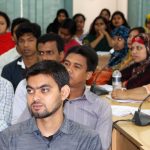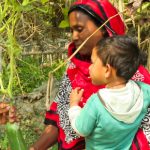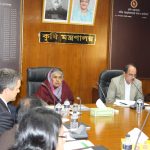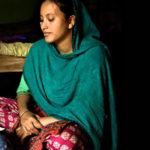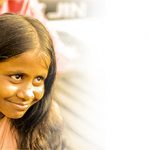WEAI4VC, a pilot project led jointly by IFPRI and USAID, aims to improve our understandings of how empowerment varies along the agricultural value chain.
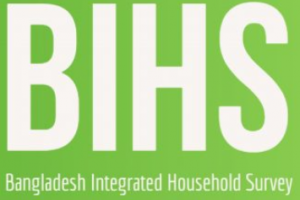 The IFPRI-PRSSP–designed Bangladesh Integrated Household Survey (BIHS) is the most comprehensive, nationally representative rural household panel survey in the country. The first round survey took place in 2011–12, the second round survey took place in 2015, and the third round survey is projected for 2018. BIHS is the only such survey to collect detailed data on:
The IFPRI-PRSSP–designed Bangladesh Integrated Household Survey (BIHS) is the most comprehensive, nationally representative rural household panel survey in the country. The first round survey took place in 2011–12, the second round survey took place in 2015, and the third round survey is projected for 2018. BIHS is the only such survey to collect detailed data on:
- plot-level agricultural production and practices,
- dietary intake of household members,
- anthropometric measurements of all household members, and
- women’s empowerment via the Women’s Empowerment in Agriculture Index (WEAI).
BIHS samples are statistically representative for rural areas in all seven administrative divisions of the country—Barisal, Chittagong, Dhaka, Khulna, Rajshahi, Rangpur, and Sylhet—as well as the “zone of influence” of USAID's Feed the Future project.
For more information on BIHS, please contact IFPRI Country Representative Dr. Akhter Ahmed.
International Women’s Day 2017: Evidence from Bangladesh
This International Women's Day, IFPRI takes a deep dive into drivers of women's disempowerment in Bangladesh - and how we are designing and evaluating programs that are going against the grain.
IFPRI Presents Changing Scenario of Bangladesh Agriculture to Ministry
On December 18, 2016, the Bangladesh Ministry of Agriculture organized a seminar for IFPRI to present the changing scenario of Bangladesh agriculture. IFPRI Country Representative in Bangladesh Dr. Akhter Ahmed situated Bangladesh's agricultural progress in an historical context using various years of Bangladesh Bureau of Statistics (BBS) data. Then, using comparing two rounds of IFPRI's […]
BIHS Round 2 Dataset Now Available
IFPRI's national results have uncovered some underlying dynamics of poverty, food security, and agricultural development in Bangladesh.
An End in Sight to Early Marriage in Bangladesh?
PRSSP researchers used IFPRI's 2015 national survey data to assess who is getting married, at what age, and why.
- « Previous Page
- 1
- …
- 3
- 4
- 5
- 6
- Next Page »
